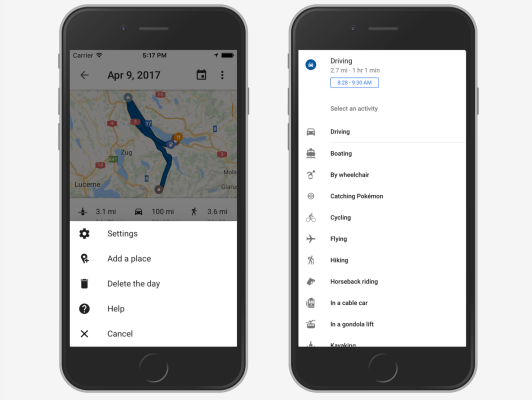Google hasn’t had a terrific record with building social networks, but its Timeline feature for Google Maps is actually surprisingly similar to a primary facet of most social products, and it’s a very interesting addition to an app that has largely been focused solely on getting you from point A to point B. Now, iOS users can find out what their Android counterparts have been enjoying with Timeline in Maps since 2015.
What is Timeline? It’s basically a browser history but for IRL navigation. Google frames it as a great way to look back and find that restaurant you thought was terrific during your most recent vacation, or to find out what day you actually dropped off your dry cleaning (versus when you’re pretty sure you did). Timeline has been live for Android users, and on the desktop, for a little while now, but iOS users get the chance to join in today, and Google’s iterating on the feature a bit to welcome the iPhone faithful.
New additions include the ability to easily control what shows up in your Timeline and what doesn’t, and edit specific items to tweak the accuracy of the information if the auto-tagged locations and activities weren’t quite right. You also can get to Your Timeline more quickly, from the place cards that pop up when you tap a location you’ve actually been to in the past. It’ll show you (and only you, when you’re actually logged in while using Maps) when you last visited, potentially triggering an immersive experiential memory moment like in Assassin’s Creed (but probably not).
There’s also now a feature that will send you monthly emails giving you a monthly summary of your travel history during the past 30-day period, giving you a look at everything you did (or making you feel lazy — or content, no judgement — for not having done much).
Of course, it’s easy to see how some users will be unnerved rather than delighted to see just how much of their movement is logged in Maps. But you can always opt out of storing your location history with Google if it makes you that uncomfortable. The eternal dance of exchanging privacy for features and services continues, as it has since the dawn of the digital age.
